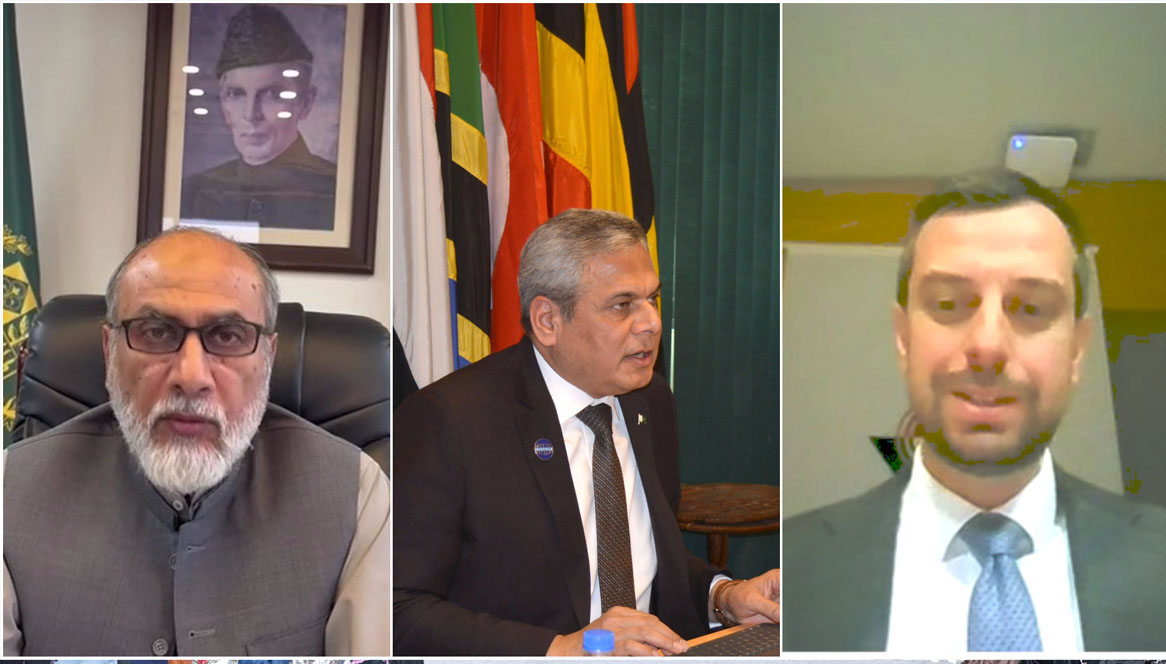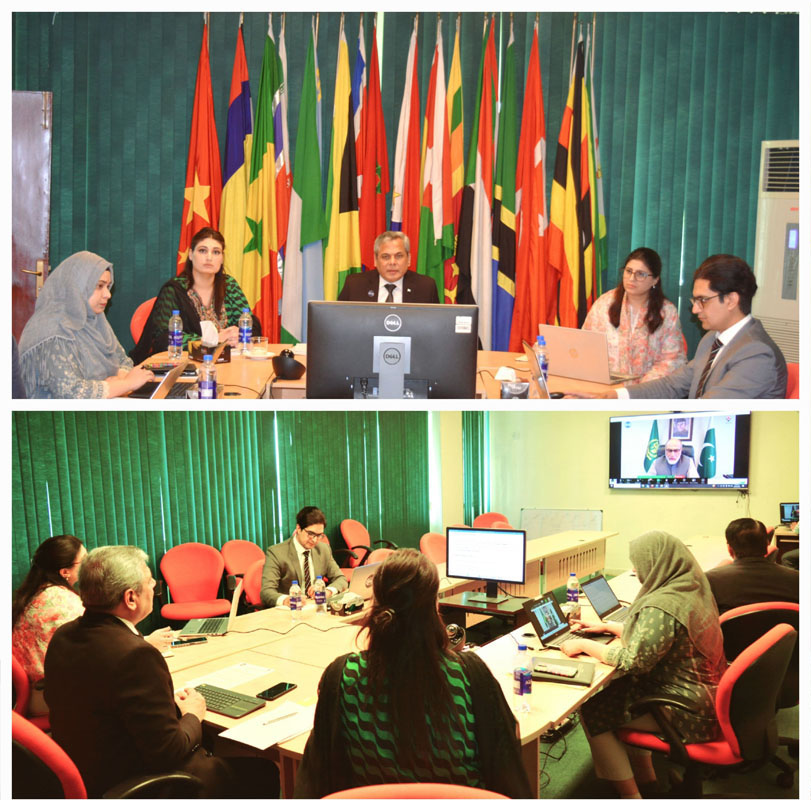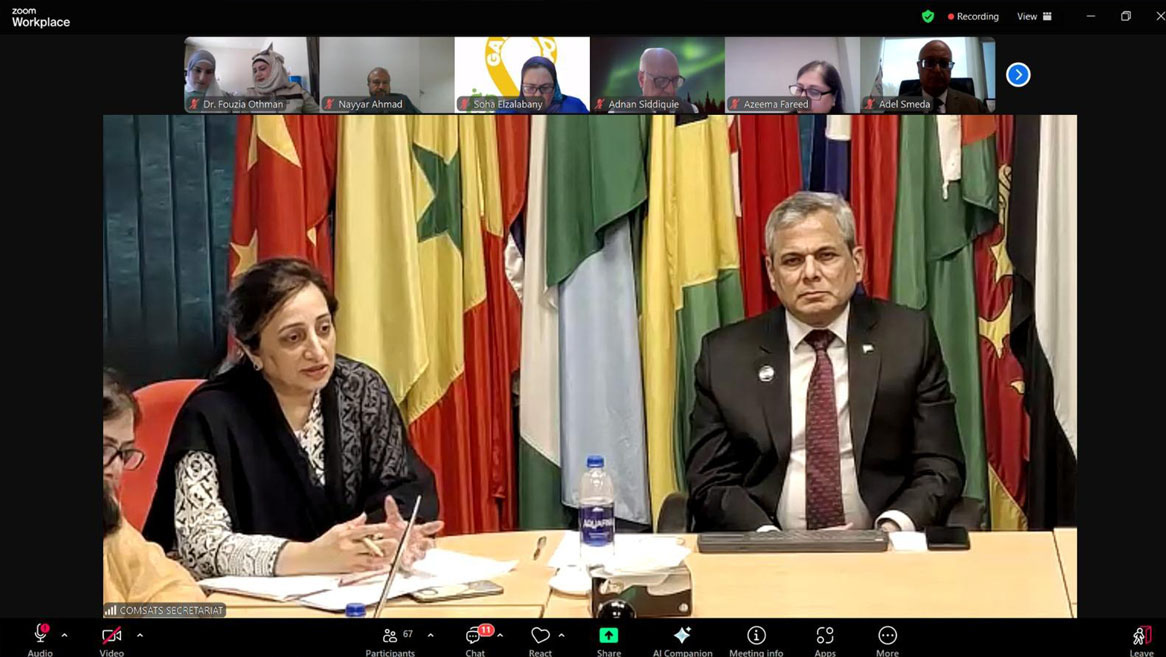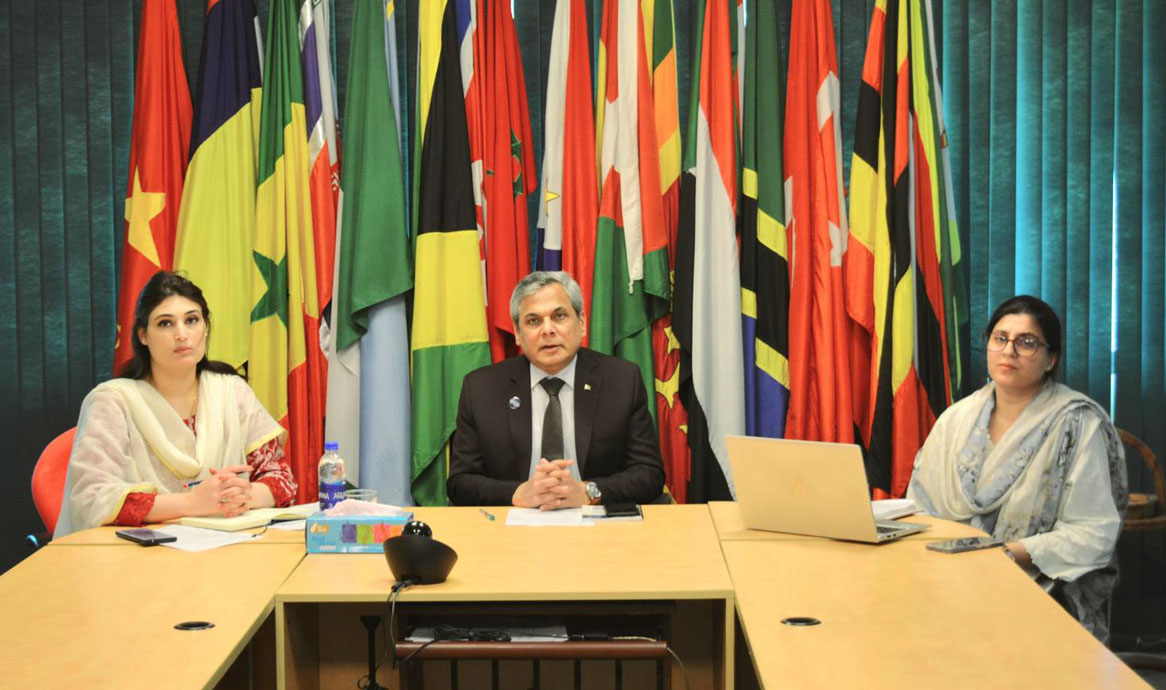COMSATS and the Scientific and Technological Research Council of Türkiye (TÜBİTAK) successfully co-organized a high-level Online Training Workshop on Zero Waste on 10th April 2025. The event brought together a distinguished group of scientists, engineers, policymakers, and practitioners from across the Global South to deliberate on innovative solutions and policy frameworks needed to transition toward a zero-waste and circular economy.
Inaugurated by Ambassador Dr. Muhammad Nafees Zakaria, Executive Director of COMSATS, and Dr. İsmail Doğan, Vice President TÜBİTAK, the workshop was a reflection of the two organizations’ longstanding commitment to strengthening science-based sustainable development in the South. In their opening remarks, both leaders emphasized the urgent need for systemic transformation in waste management systems, and underscored the importance of multilateral cooperation in addressing the mounting environmental and resource-use challenges.

In a special message for the event, H.E. Mr. Khalid Hussain Magsi, Federal Minister for Science and Technology, Government of Pakistan, lauded the joint initiative of COMSATS and TÜBİTAK—two institutions that have long served as pillars of science-driven development in the Global South.” The Minister remarked: “Zero Waste is not merely an environmental ambition—it is a national governance priority. It is a socio-economic and health necessity, and a commitment to future generations.” The Minister further noted that “Pakistan, as a founding member of COMSATS, has placed sustainability at the core of its national development agenda, launching a series of ambitious reforms aimed at inclusive, equitable, and resilient growth.”
The technical proceedings of the workshop were structured into two thematic sessions, each highlighting advancements in research and the practical integration of zero waste principles into scientific and technological innovation. The first session, titled “Waste-to-Resource Technologies,” explored the growing potential of transforming waste streams into valuable resources. Discussions delved into the impacts of microplastics in marine ecosystems and the pressing need for research-driven mitigation strategies. Innovative approaches to extracting plant-based proteins from agricultural waste showcased how food security and resource efficiency can be addressed simultaneously. The session also presented emerging applications of pyrolysis and biomass gasification for clean energy production, the deployment of advanced materials such as metal-organic frameworks (MOFs) for methane recovery from biogas, and strategies for energy recovery from wastewater sludge and agri-industrial residues, including by-products from olive processing.

The second session, “Waste Management and Recycling,” focused on enhancing current waste handling systems through technological innovation and circular economy practices. Presentations covered diverse areas, including the re-refining of used lubricants, advanced sludge dewatering techniques for municipal wastewater treatment, and membrane-based technologies enabling the chemical recovery of valuable compounds from industrial effluents. The session also highlighted novel methods for the recovery and recycling of critical raw materials essential to hydrogen energy systems. Cross-cutting solutions such as artificial intelligence and drone-based imaging for the identification of coastal litter, along with the application of molecular biology for biodiversity monitoring in polluted environments, illustrated how multidisciplinary research is being mobilized to support zero waste goals and foster systemic change across sectors.
The workshop attracted an impressive and diverse range of participants, including representatives of international organizations, research institutions, environmental agencies, and governmental bodies from COMSATS Member States and beyond. The strong turnout reflected the timeliness of the theme and the global momentum behind zero waste policies and practices. Participants acknowledged the workshop as a significant knowledge-sharing platform, fostering deeper cooperation and capacity building among Global South countries.
The event aligned closely with the Zero Waste Programme of Türkiye, an internationally acclaimed initiative led by the First Lady of Türkiye, H.E. Emine Erdoğan. The programme promotes waste minimization, recycling, and responsible consumption across all sectors of society. In this context, the workshop also acknowledged the commendable efforts being undertaken under Pakistan’s “Suthra Punjab” Programme—a flagship initiative envisioned by the Honourable Chief Minister of Punjab, Ms. Maryam Nawaz Sharif. The programme represents a transformative approach to integrated provincial-level waste management and sanitation, rooted in principles of environmental stewardship, community ownership, and behavioural change.
The workshop marked yet another milestone in COMSATS’ efforts to foster South-South and Triangular Cooperation for science, technology, and innovation. With a network of 27 member countries and 25 Centres of Excellence, COMSATS remains dedicated to enabling its member states to harness science for sustainable development and environmental resilience. TÜBİTAK, as Türkiye’s leading national R&D organization, continues to serve as a strategic partner in advancing scientific excellence and technology-driven sustainability solutions, both domestically and across the wider Global South.





